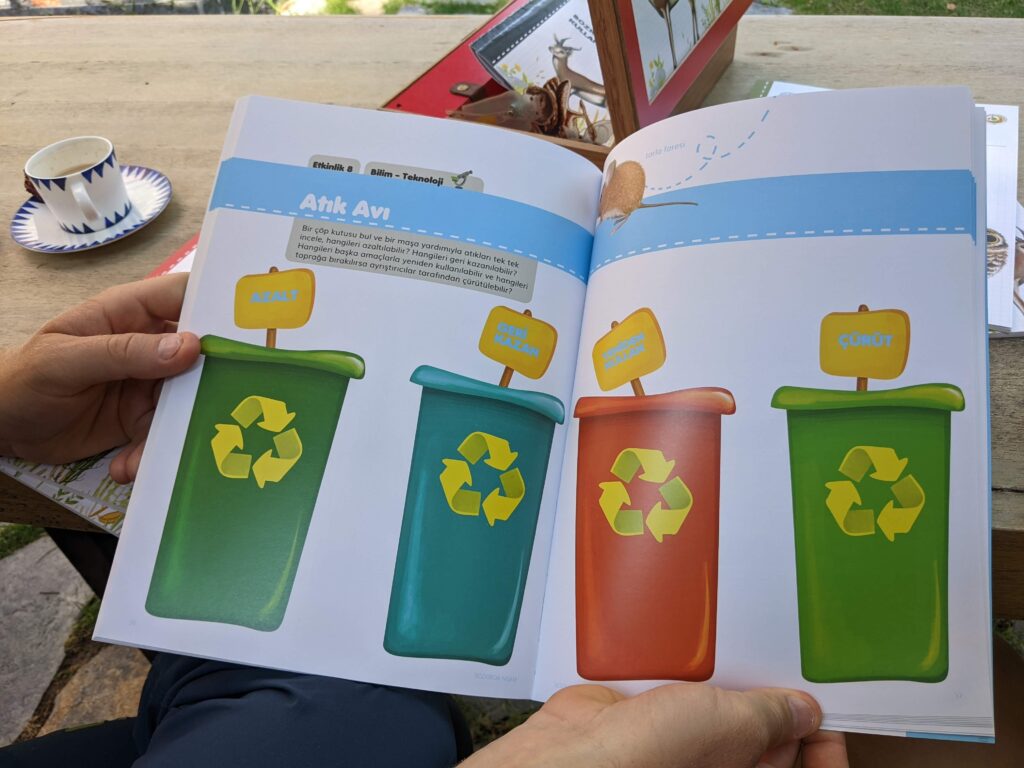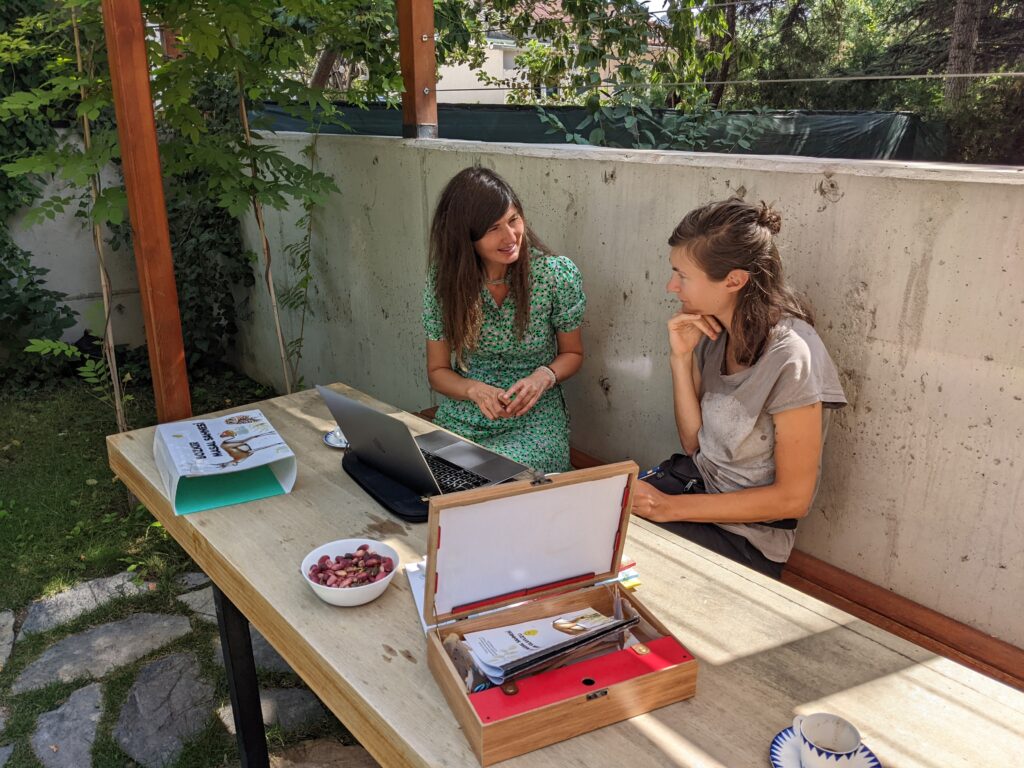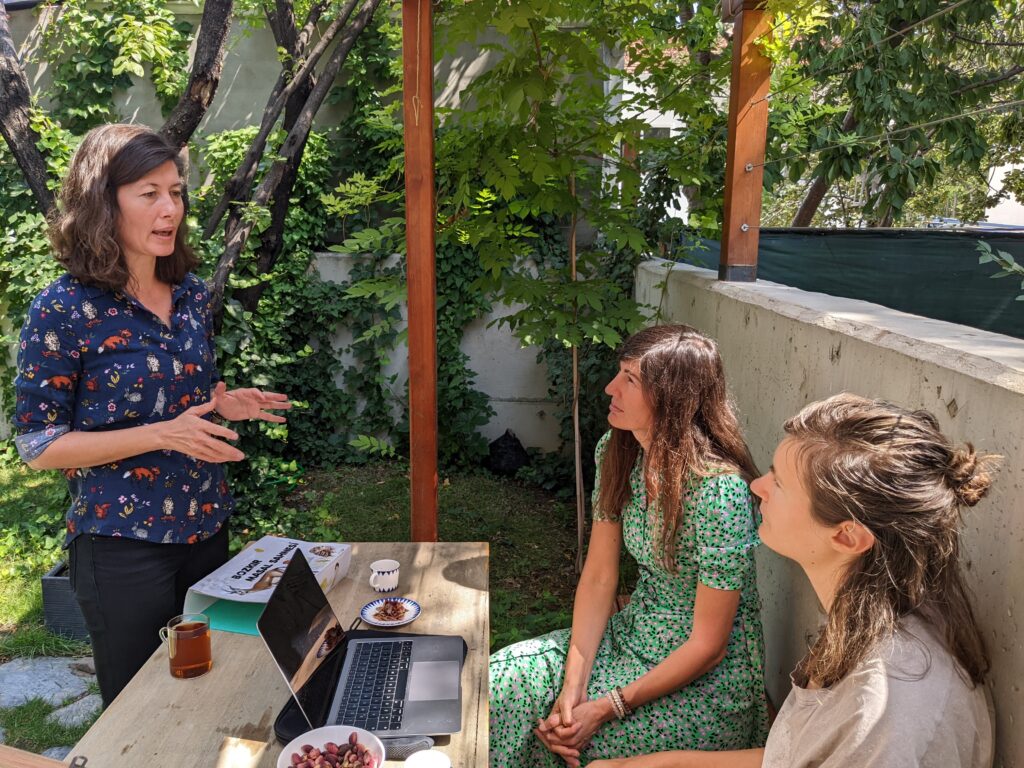Nature conservation has to be tackled on many fronts to be effective. A strong non-governmental sector is a crucial component in the big conservation puzzle. Many countries around the globe are already suffering from environmental, social, and economic impacts of development, rapid population growth and natural resource exploitation. A strong NGO sector to engage civil society, public authorities and businesses can lift barriers and help countries to tackle these issues more successfully.
But what makes an NGO strong? Expertise, professionalism, and innovativeness are among the main ingredients. All these adjectives fit the Doğa Koruma Merkezi or Nature Conservation Centre, a Turkish NGO which we met in their Ankara office. During our time there, we got introduced to several of their diverse and creative projects focusing on climate change, nature education, sustainable agriculture and biodiversity protection. We have been inspired, and surely so will you.
The Nature Conservation Centre
Established in 2004, the Nature Conservation Centre was founded with the aim to protect Turkey´s biodiversity based on a multidisciplinary and holistic approach. The NGO puts conservation science in the forefront to deliver conservation solutions, which are sustainable, comprehensive and innovative. Dr. Uğur Zeydanlı, Director of the organisation explains that remaining scientifically sound has always been their priority. As an NGO, the Nature Conservation Centre has a lot of competition for national and international funding, therefore they run diverse fundraising activities and have various long-standing collaborations. Uğur tells us that due to the good expertise and innovative ideas of the team, the organisation has managed to secure a good standing in the Turkish conservation sector. With about 15 employees and a few local field ecologists, it is not among the biggest NGOs in the country. However, this is intentional. According to Uğur, this is the optimal size which still allows direct communication and collaboration among the team members. Everybody’s ideas and experiences are encouraged at the table, and there is no scarcity of ideas. During our meeting, we had the chance to delve into four of them.
A fresh spin on nature education
One of the main activities of the Nature Conservation Centre is nature education – educating children and youth directly, implementing programs in educational institutions and providing workshops to teachers. Nature education specialist Tuğba Can shows us some freshly designed educational materials, which include various thematic exercise books and, most interesting to us, a shadow play theatre. She explains that shadowplay has a long history and cultural significance in Turkey, dating back to the 14th century. Therefore, using such traditional elements in modern education integrates cultural heritage education in nature-friendly thinking.


Moving on to the adult generations, the organisation implements annual citizen science activities in and around Ankara. Within a so-called bioblitz, a large group of people consisting of experts as well as the general public conducts biodiversity assessment surveys within a short period of time and designated area. The aim of this biodiversity surveying marathon is to record and monitor all the living species inside that area over the course of several years while awakening people’s interest in nature and species diversity through showing them a whole new way of looking at a natural area. These bioblitzes are held in cooperation with the Middle Eastern Technical University of Ankara and organised annually in multiple areas, such as the university campus, city parks and agricultural areas. This year only, there were over 200 participants joining the marathon and over 260 species were recorded.
More green entrepreneurs to Turkey!
Tuğba tells us about another international project called ‘Connect to Nature’, which focuses on increasing youth employment in the green business sector. Project partners are firstly assessing the knowledge, attitudes, habits and expectations of youth towards ecological literacy and green entrepreneurship. In the next step, the project creates a so-called Eco-LinkedIn where youth can connect with green companies. Moreover, an online training program is created for young people who want to establish a green start-up.
Climate-resilient, sustainable farming
Agriculture in Turkey is an important part of the country’s economy. About half of the land is agricultural, employing almost 20% of the workforce. Therefore, the Nature Conservation Centre has a big focus on working towards transforming Turkey’s agriculture in order to adapt to the climate crisis. Dr. Melike Kuş, Land and Water Programme Coordinator, explains that much of their efforts go towards improving the efficiency of water use in irrigation as well as the water retention of the soil. As always, education and awareness raising are also at the core of long-term success, therefore the organisation teaches farmers about the climate crisis and efficient agricultural practices.


NGOs also have a strong role in supporting this transformation. Within the project ‘Climate Resilient Agriculture Network’, the Nature Conservation Centre aims to establish a network of NGOs working in the field of climate change and agriculture. On one hand, this network collects materials on disaster data (where agriculture is harmed) using citizen science via a smartphone app. But the overarching concept of this network is to strengthen the capacity of NGOs in compiling and communicating knowledge and practices on climate resilient agriculture to the public and private sector.
The Nature Conservation Center is a great example of how NGOs can use scientific expertise, practical experience and education activities to bridge gaps between authorities and people. They can be incubators for innovative ideas and are often able to test and implement them faster than public institutions. To do this successfully, they should involve authorities, business and society for both funding and implementation.
For more insights and concrete outputs, please visit the ‘Publications’ tab on the website of the Nature Conservation Centre!
